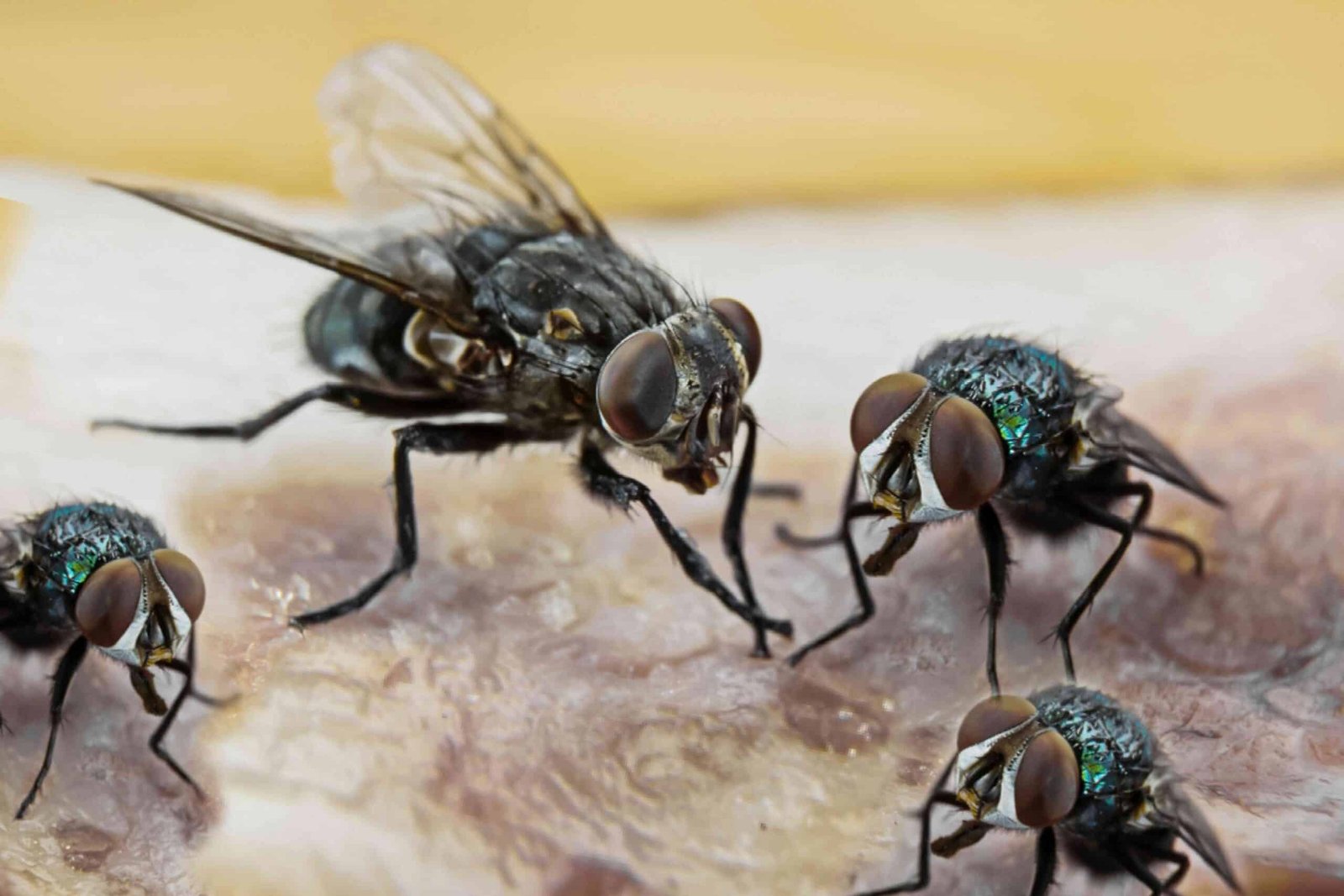
Effective Fly Control Methods
Flies can be a major nuisance, particularly in homes, restaurants, and outdoor areas. These pests not only annoy with their persistent buzzing but also pose health risks as they can carry and transmit diseases. Implementing effective fly control methods is essential to maintaining a clean and healthy environment. Here are some proven strategies to control flies, with insights from a Salt Lake City pest control company.
Table of Contents
ToggleUnderstanding Fly Behavior
Before diving into control methods, it’s important to understand why flies are attracted to certain areas.
Attraction Factors
Flies are primarily attracted to:
- Food: Open food sources, especially sugary and decaying items.
- Waste: Garbage and compost bins.
- Moisture: Damp areas, such as drains and leaky pipes.
Common Types of Flies
Identifying the type of fly can help tailor control methods:
- House Flies: Common in homes and attracted to food and waste.
- Fruit Flies: Drawn to ripening or rotting fruits and vegetables.
- Drain Flies: Found near moist areas like drains and sewers.
Preventive Measures
Prevention is the first line of defense against fly infestations. Implementing these measures can significantly reduce the presence of flies.
Maintain Cleanliness
A clean environment is less attractive to flies.
- Regular Cleaning: Wipe down surfaces, clean up spills immediately, and avoid leaving dirty dishes out.
- Food Storage: Store food in sealed containers and refrigerate perishables.
- Waste Management: Empty trash bins regularly and ensure they are tightly sealed.
Proper Waste Disposal
Proper waste disposal practices can prevent flies from breeding.
- Secure Trash Bins: Use bins with tight-fitting lids.
- Regular Disposal: Dispose of garbage frequently, especially in hot weather.
- Composting: If you compost, keep the compost bin covered and away from the house.
Eliminate Moisture
Flies thrive in moist environments.
- Fix Leaks: Repair leaky pipes and faucets promptly.
- Clean Drains: Regularly clean drains to prevent build-up of organic material.
- Reduce Standing Water: Eliminate standing water both inside and outside the home.
Fly Control Methods
If preventive measures are not enough, the following methods can help control and eliminate flies.
Physical Barriers
Physical barriers can prevent flies from entering your home.
- Screens: Install screens on windows and doors.
- Sealed Entry Points: Seal cracks and gaps around windows, doors, and walls.
- Fly Strips: Use fly strips in areas where flies are prevalent.
Traps
Traps are an effective way to reduce fly populations.
- Fly Paper: Sticky fly paper can trap flies in kitchens and other high-traffic areas.
- Light Traps: UV light traps attract and kill flies, making them suitable for both residential and commercial use.
- Bottle Traps: DIY bottle traps with bait (sugar water or vinegar) can capture flies effectively.
Natural Remedies
Natural remedies can deter flies without using chemicals.
- Essential Oils: Oils like eucalyptus, lavender, and peppermint repel flies. Mix with water and spray around the home.
- Herbs: Planting herbs such as basil, mint, and rosemary near entry points can deter flies.
- Vinegar Traps: A bowl of vinegar with a few drops of dish soap can attract and trap flies.
Chemical Solutions
In cases of severe infestations, chemical solutions may be necessary.
- Insecticides: Use fly sprays and aerosols as a last resort, ensuring proper ventilation.
- Larvicides: Target fly larvae by treating breeding sites with larvicides.
- Professional Services: A Salt Lake City pest control company can provide targeted treatments and ongoing management.
Professional Fly Control
For persistent or large-scale fly problems, professional pest control services can be invaluable.
Routine Inspections
Regular inspections can identify potential problem areas and allow for early intervention.
- Initial Assessment: A thorough inspection to identify fly species and breeding sites.
- Follow-Up Visits: Scheduled visits to monitor and manage fly populations.
Customized Treatment Plans
Professionals can develop tailored treatment plans to address specific issues.
- Targeted Treatments: Use of appropriate methods based on the type of fly and infestation level.
- Preventive Advice: Recommendations for preventing future infestations.
Ongoing Management
Ongoing management ensures long-term control and prevention.
- Regular Maintenance: Continuous monitoring and maintenance of control measures.
- Education: Educating staff and residents on best practices for fly prevention.
Conclusion
Effective fly control requires a combination of preventive measures, physical barriers, traps, natural remedies, and professional services. By maintaining cleanliness, properly managing waste, eliminating moisture, and utilizing various control methods, you can significantly reduce the presence of flies in your environment. For persistent problems, consulting a Salt Lake City pest control company can provide expert solutions and ensure a fly-free space. Implementing these strategies will help create a healthier and more comfortable living or working environment.
Anthony M. Salvatori is President of Steadfast Painting Solutions. He has 20 years of painting experience and has been operating his own company for nine years. Salvatori is proud to be leading such an incredible team of individuals with the common goal of providing excellent service and quality.






